Veranstaltungen
-
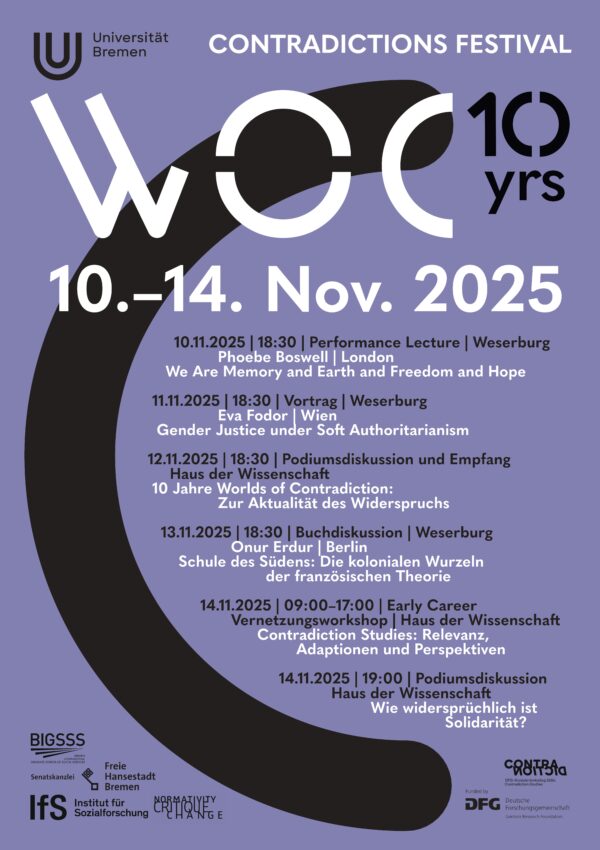 Contradictions Festival – 10 Jahre WOC
Contradictions Festival – 10 Jahre WOCVom 10.–14. November 2025 veranstaltet die interdisziplinäre Verbundforschungsplattform Worlds of Contradiction (WOC) aus Anlass ihres zehnjährigen Bestehens das WOC Contradictions Festival in Kooperation mit dem DFG-Graduiertenkolleg 2686 – Contradiction Studies, dem Berliner DFG-Graduiertenkolleg 2638 – Normativität, Kritik, Wandel, der Bremen International Graduate School of Social […]
-
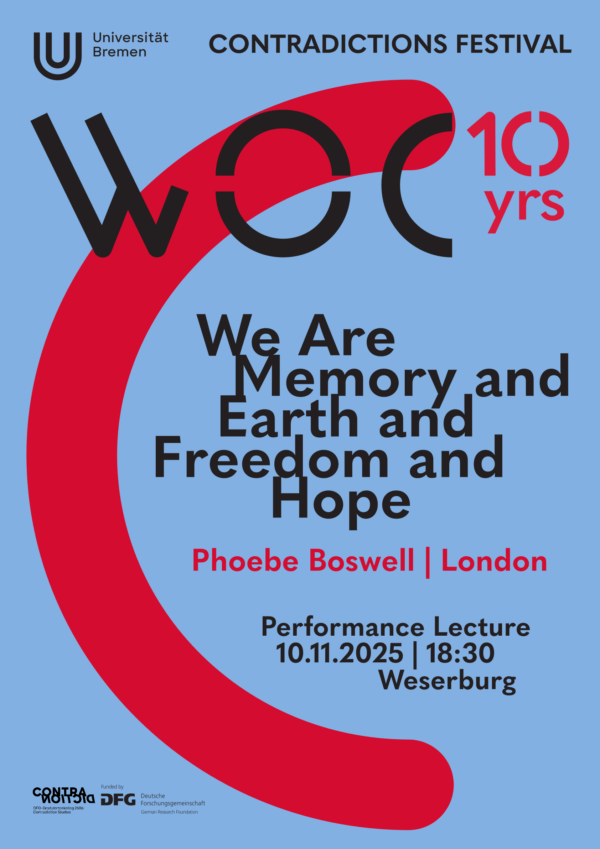 We are Memory and Earth and Freedom and Hope | Performance Lecture
We are Memory and Earth and Freedom and Hope | Performance LectureWith a commitment to the black body, the woman body, the queer or non-conforming body, the fugitive body, the errant body, the sick or uniquely abled body, the decolonial body, the collective body, and how it is seen, felt, loved, and cared for, Phoebe Boswell will […]
-
 Toolbox #9 – Textuality of Contradiction: from Rhetorics to Lyotard
Toolbox #9 – Textuality of Contradiction: from Rhetorics to LyotardToolbox im Wintersemester 2025/26
-
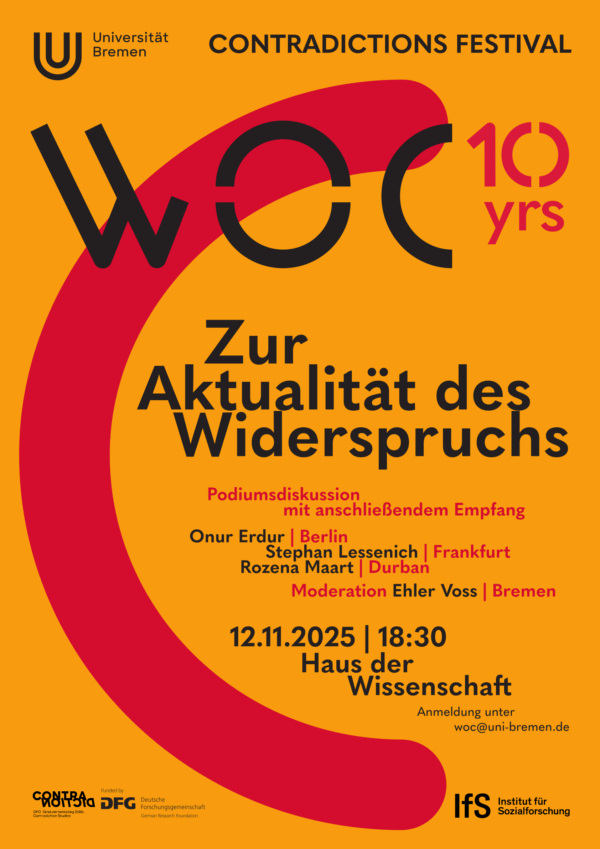 Zur Aktualität des Widerspruchs | Contradictions Festival – 10 Jahre WOC | Podiumsdiskussion
Zur Aktualität des Widerspruchs | Contradictions Festival – 10 Jahre WOC | PodiumsdiskussionPodiumsteilnehmer:innen:Dr. Onur Erdur | Institut für Kulturwissenschaft, Humboldt-Universität zu Berlin & WOC Gastprofessor 2025Prof. Dr. Stephan Lessenich | Institut für Soziologie, Goethe-Universität Frankfurt am Main & Institut für SozialforschungProf. Dr. Rozena Maart | University of KwaZulu-Natal Durban & GRK2686-Mercator Fellow Moderation:PD Dr. Ehler Voss | […]
-
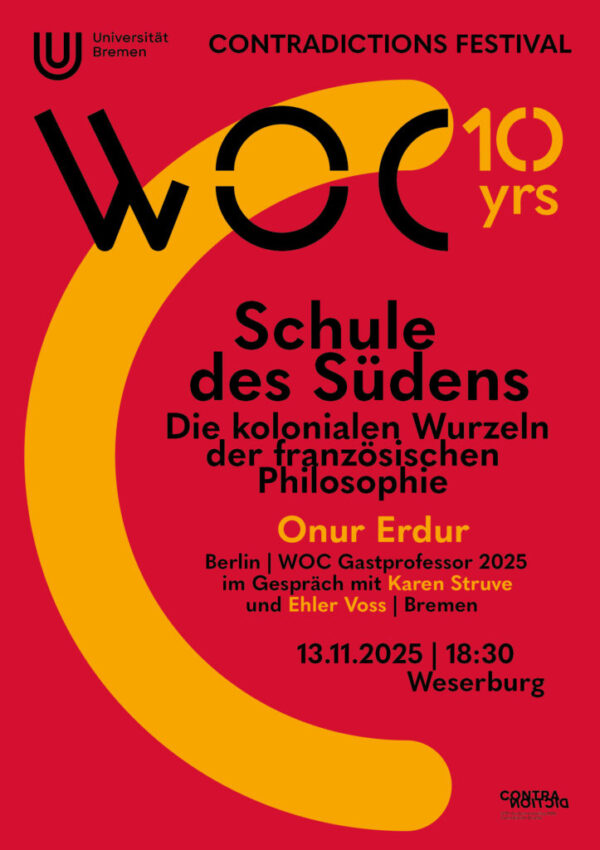 »Schule des Südens« – Onur Erdur im Gespräch mit Karen Struve & Ehler Voss
»Schule des Südens« – Onur Erdur im Gespräch mit Karen Struve & Ehler VossOnur Erdur (Humboldt-Universität zu Berlin & WOC Gastprofessor 2025) im Gespräch mit Karen Struve und Ehler Voss über sein Buch Schule des Südens: Die kolonialen Wurzeln der französischen Theorie. Eine vollständige Programmübersicht zum 10 Jahre WOC – Contradictions Festivals im Zeitraum 10.–14. November 2025 findet […]
-
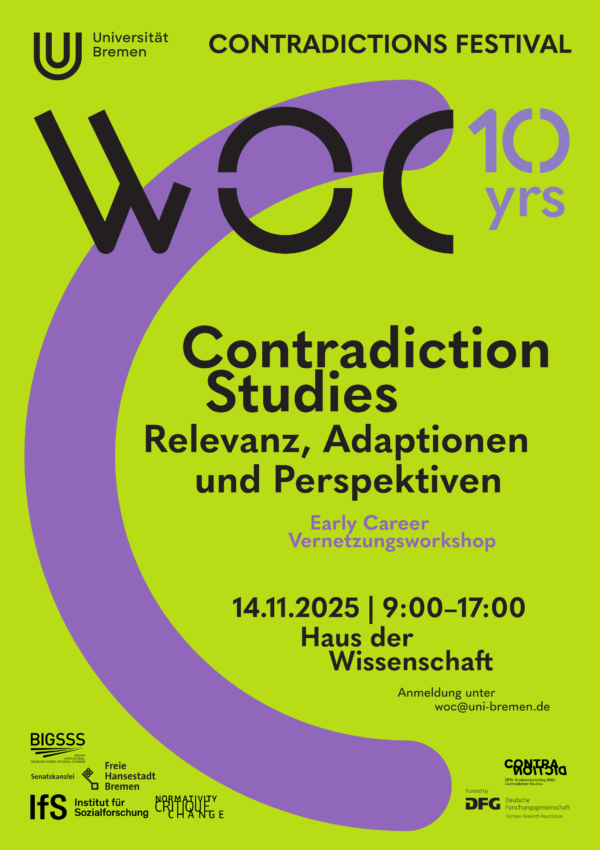 Early Career Vernetzungsworkshop
Early Career VernetzungsworkshopEarly Career Vernetzungsworkshop im Rahmen von 10 Jahre WOC Contradictions Festivals mit Mitgliedern des WOC Graduiertennetzwerks (WOC GradNet), des DFG-Graduiertenkollegs 2686 Contradiction Studies, der Bremen International Graduate School of Social Sciences (BIGSSS) & des Instituts für Sozialforschung (IfS) und des GRK 2638 Normativität, Kritik, Wandel
-
 Toolbox #10 – Language, Discourse and Contradiction
Toolbox #10 – Language, Discourse and ContradictionToolbox im Wintersemester 2025/26
-
 Workshop – Research Data Management
Workshop – Research Data ManagementWeitere Informationen folgen in Kürze.
-
 Toolbox #11 – Die große Kontradiktion der Religionswissenschaft und der Cultural Turn
Toolbox #11 – Die große Kontradiktion der Religionswissenschaft und der Cultural TurnToolbox im Wintersemester 2025/26
-
 Toolbox #12 – Räume/Geographien/Widersprüche
Toolbox #12 – Räume/Geographien/WidersprücheToolbox im Wintersemester 2025/26
-
 Kick off Workshop – Peer Mentoring
Kick off Workshop – Peer MentoringWeitere Informationen folgen in Kürze.
-
 Toolbox #13 – Interner Workshop
Toolbox #13 – Interner Workshop
-
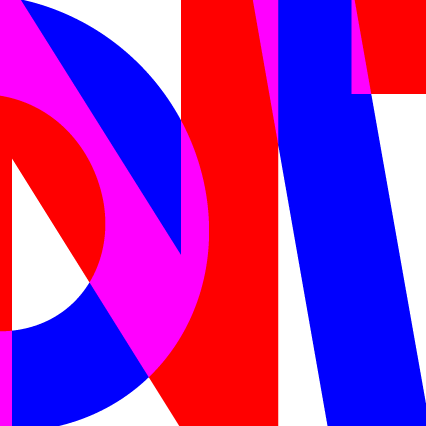 Toolbox #14 – Academic Environment
Toolbox #14 – Academic EnvironmentToolbox im Wintersemester 2025/26
-
 Workspace/Kolloquium #1
Workspace/Kolloquium #1Workspace/Kolloquium #1 im Wintersemester 2025/26
-
 Workspace/Kolloquium #2
Workspace/Kolloquium #2Workspace/Kolloquium #2 im Wintersemester 2025/26
-
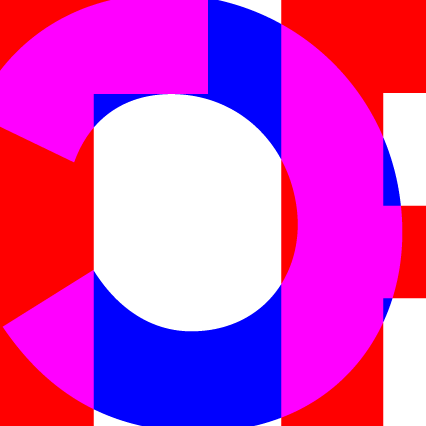 Workspace/Kolloquium #3
Workspace/Kolloquium #3Workspace/Kolloquium #3 im Wintersemester 2025/26
-
 Workspace/Kolloquium #4
Workspace/Kolloquium #4Workspace/Kolloquium #4 im Wintersemester 2025/26
Vergangene Termine
-
 Unsicherheit im Herzen der Herstellungspraxen naturalisierter Ordnungen – Race und trans* als fundierende Kategorien in der Sexualhormonforschung
Unsicherheit im Herzen der Herstellungspraxen naturalisierter Ordnungen – Race und trans* als fundierende Kategorien in der SexualhormonforschungPanel 5: Uncertainty of a ‚Natural‘ Order. (Queer) Feminist Uncertainties/Certainties at the Congress Politische Theorie in Zeiten der Unisicherheit, U Bremen 2023.
-
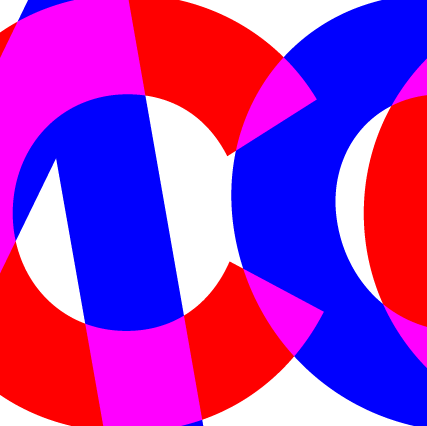 Political Theory in Times of Uncertainty
Political Theory in Times of UncertaintyPolitische Theorie in Zeiten der Ungewissheit
-
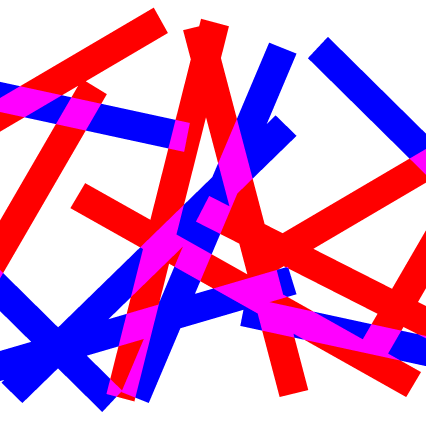 „Das muss eine Demokratin aushalten können“: Eine Problematisierung des Aushalten-Könnens im Dialog mit feministischen Perspektiven auf Sorge/Care
„Das muss eine Demokratin aushalten können“: Eine Problematisierung des Aushalten-Könnens im Dialog mit feministischen Perspektiven auf Sorge/CareVortrag im Rahmen der Dreiländertagung Politikwissenschaft „Zeitenwende – Politik(Wissenschaft) in unsicheren Zeiten“
-
 The Truth of Politics. On the Epistemization of the Protests against the German Corona Policy
The Truth of Politics. On the Epistemization of the Protests against the German Corona PolicyThe diagnosis of an epistemization of the political, according to which political questions in Western democracies would increasingly be negotiated as questions of knowledge, is confirmed also in the debate about the state imposed measures to contain the spread of SARS-CoV-2. This tendency would suggest […]
-
 Ethnografie als Methode (in) der Rechtswissenschaft
Ethnografie als Methode (in) der RechtswissenschaftDie 63. Junge Tagung Öffentliches Recht 2023 findet vom 18. bis 21. Juli 2023 zu dem 63. Junge Tagung Öffentliches Recht zum Thema Interaktionen: Internationalität, Intra- und Interdisziplinarität in Hamburg statt.
-
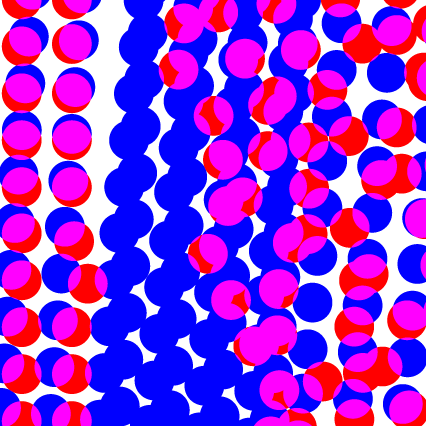 Vollversammlung und Semesterausklang
Vollversammlung und Semesterausklang
-
 Constitution and/or Declaration. Discussing the Question of the (Linguistic) Construction of Contradictions
Constitution and/or Declaration. Discussing the Question of the (Linguistic) Construction of ContradictionsIn this Lunchbox we want to discuss what it means to consider contradictions a product of declaration. In order to make clear the history and theoretical assumption of this concept, we want to give a brief input on Speech Act Theory and provide some concrete […]
-
 Afrospanish Literature. Between Activism and Creating References
Afrospanish Literature. Between Activism and Creating ReferencesIm Rahmen des 3. Wuppertaler Malala Day 2023.
-
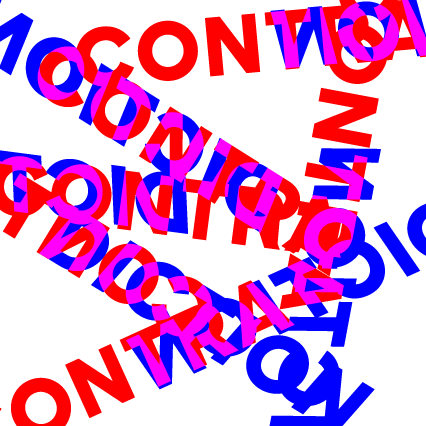 Performing and Withstanding Contradictions or: an Uneasy Hunch
Performing and Withstanding Contradictions or: an Uneasy HunchCarolin Zieringer (GRK Contradiction Studies) Kommentare Dr. Rosine Kelz (U Bremen) Dr. Brigitte Bargetz (U Kiel)
-
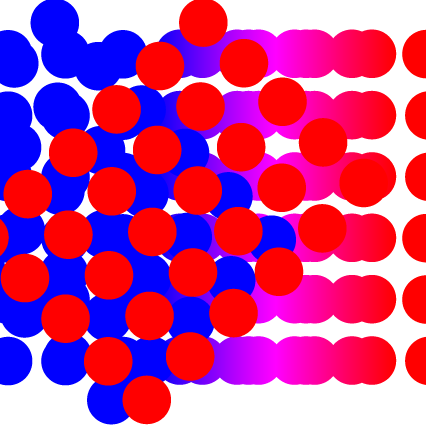 No Contradiction: True and Effective Knowledge
No Contradiction: True and Effective KnowledgeProf. Frieder Vogelmann (U Freiburg)